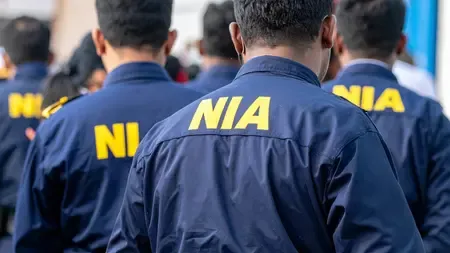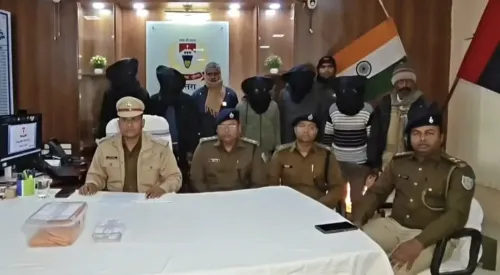What Sentences Were Given to Two Bangladeshi Nationals in Human Trafficking Case?

Synopsis
Key Takeaways
- Two Bangladeshi nationals sentenced to two years RI.
- Convicts involved in human trafficking and identity fraud.
- NIA's rigorous investigation led to successful convictions.
- Reinforces India's commitment to combat transnational crime.
- Ongoing efforts to address systemic vulnerabilities at borders.
New Delhi, May 20 (NationPress) In a notable ruling, the Special Court of the National Investigation Agency (NIA) located in Chennai has handed down a sentence of two years of rigorous imprisonment (RI) to two Bangladeshi nationals in relation to a 2023 human trafficking case that involved illegal entry, forged documents, and the exploitation of vulnerable individuals.
As per a press statement released by the NIA on Tuesday, the individuals convicted by the court have been named as Shahabuddin Hossain, also known as Md Sahab Uddin, and Munna, also referred to as Noor Karim or Nur Karim, both hailing from Chittagong district, Bangladesh. Moreover, the special NIA court imposed a fine of Rs 11,000 on each convict.
The two were apprehended in connection with a case registered in November 2023. The NIA has submitted a chargesheet against Shahabuddin and Munna, while a separate legal process is ongoing against a third suspect, Babu SK, also known as Babu Shoriful or Md Soriful Babumiya, who is another Bangladeshi.
Investigations by the NIA have uncovered that both convicts entered India illegally with the help of traffickers and touts operating along the porous border regions. Once inside the country, they managed to obtain forged Indian identity documents including Aadhaar and PAN cards. They subsequently utilized these documents to open bank accounts and acquire SIM cards, thereby creating a facade of a legal identity in India.
Further inquiries revealed that Shahabuddin and Munna, in collusion with Babu, participated in the trafficking of Rohingya and Bangladeshi nationals into India. The victims were brought in unlawfully, forced to reside under coercive circumstances, and exploited through forced labor. The accused allegedly benefited from this illicit operation by placing the victims in low-paying, exploitative jobs.
The NIA emphasized that this case is a part of a larger initiative to dismantle transnational human trafficking networks that exploit border vulnerabilities for illegal immigration and identity fraud. Officials stated that the ruling reinforces India’s dedication to tackling human trafficking, illegal immigration, and organized cross-border crime, with further actions against the third accused still in progress.










